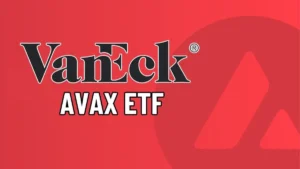TL;DR
- Fidelity Investments has revised its application for an Ethereum ETF to incorporate staking, a process where investors participate in the validation of transactions on a blockchain network by holding and “staking” their cryptocurrencies.
- By permitting the fund to participate in staking, Fidelity seeks to enhance potential yields for investors and simultaneously foster the Ethereum network’s stability and expansion.
- Fidelity’s choice to invest in ether may have far-reaching effects on the wider cryptocurrency market, drawing considerable institutional attention toward Ethereum and other cryptocurrencies that utilize staking.
Fidelity Investments has revised its application for an Ethereum ETF to incorporate staking. This amendment, submitted to the US SEC on March 18, has ignited debates in both the financial and cryptocurrency sectors, eliciting a variety of reactions. The inclusion of staking in the ETF could bolster Ethereum’s network and yield returns, a significant attribute following Ethereum’s transition to a PoS framework.
FIDELITY ADDS STAKING TO THEIR ETH ETF APPLICATION IN AMENDMENT
Source: DB | Coins: ETH
— db (@tier10k) March 18, 2024
Staking is a process where investors participate in the validation of transactions on a blockchain network by holding and staking their cryptocurrencies. In return, they earn staking rewards, providing an additional income stream.
Fidelity’s strategic move underlines its acknowledgment of the escalating significance of staking within the cryptocurrency sphere, especially in networks such as Ethereum. The incorporation of staking elements in Fidelity’s ETF application underscores the firm’s progressive stance towards cryptocurrency investments.
By permitting the fund to participate in staking, Fidelity seeks to enhance potential yields for investors and simultaneously foster the Ethereum network’s stability and expansion.
Fidelity’s Collaboration with Staking Providers

Moreover, Fidelity’s choice to invest in ether may have far-reaching effects on the wider cryptocurrency market. As one of the world’s most substantial financial institutions, Fidelity’s foray into the Ethereum staking arena could draw considerable institutional attention toward Ethereum and other cryptocurrencies that utilize staking.
Fidelity isn’t alone in acknowledging the potential of staking. The company’s documents indicate that it can collaborate with reliable staking providers, including sponsor affiliates. Lido, a notable provider, currently has approximately $35 billion worth of ether staked in its contracts.
By utilizing well-established staking providers, Fidelity strives to guarantee the safety and effectiveness of its staking operations, while optimizing investor returns. Fidelity’s foray into the staking industry follows the successful debut of a Bitcoin futures ETF in January, which has already amassed over $9 billion in assets.
To sum up, Fidelity’s choice to amend the application for the spot ether ETF to incorporate staking provisions signifies a crucial step in the progression of cryptocurrency investments. By adopting the staking mechanism, Fidelity seeks not only to enhance investor returns but also to foster the expansion and stability of the Ethereum network.
With the escalating interest from institutions in digital assets, Fidelity’s tactical maneuver underscores the growing integration of conventional finance and the cryptocurrency realm.










